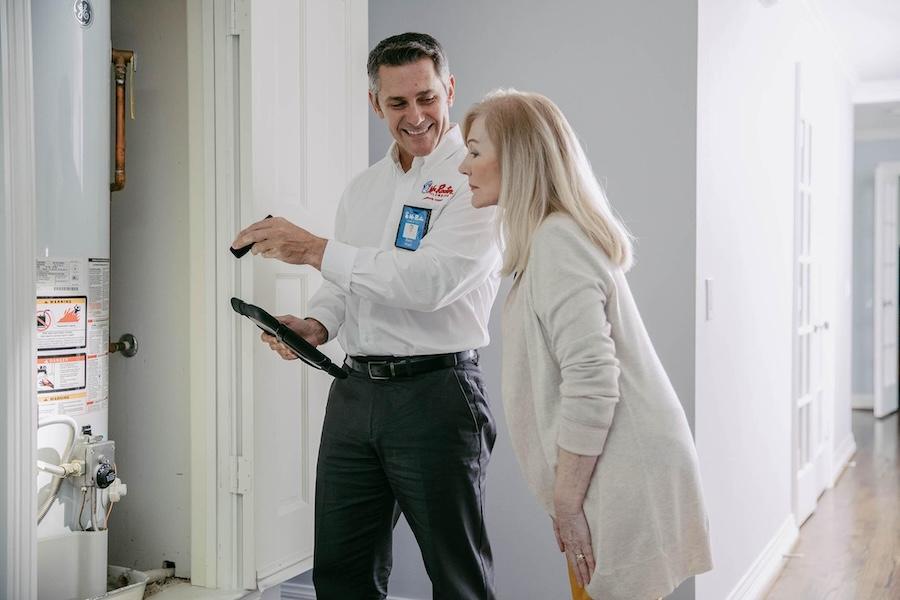Call Us This Friday to Get $50 OFF
Call Us Now to Get$50 OFF Friday.
Ratings based on 2491 reviews
Great Plumbers, Great Reviews
Call Us This Friday to Get $50 OFF
Call Us Now to Get$50 OFF Friday.
Ratings based on 2491 reviews
Great Plumbers, Great Reviews

Your water heater provides that steady flow of hot water, yet with so many types out there, choosing the right one can be confusing. The team at Mr. Rooter Plumbing wants you to be well-prepared to pick a reliable water heater that suits your home and lifestyle. Read more to find out about the different types of water heaters, what to consider when choosing one, and how to know when it might be time for an upgrade.
Finding the perfect water heater requires picking the right type for your daily routines and budget. Here are some factors to consider:
If you've ever scrubbed endlessly at chalky residue on your glassware, spotted white streaks on your faucets, or…
When you think about your building’s infrastructure, the main water line installation might not be the first thing…
Water heaters work around the clock to supply our homes and businesses with the hot water we use…
You may or may not notice it, but the water from our taps can contain an assortment of…
If saving on energy bills and reducing environmental impact is at the top of your mind, energy-efficient water heaters have a lot to offer. Here’s what to prioritize for the best results:
Even the best water heaters have a lifespan. Knowing when to replace an aging unit can help you avoid unexpected cold showers and repairs. Here are some signs that it might be time for an upgrade:
Different types of water heaters come with their own unique maintenance requirements. Knowing what each type requires can help you extend its lifespan and improve efficiency. Here’s what to expect for each:
Are you ready to avoid frequent repairs, save on energy bills, and enjoy reliable hot water for years to come? Call Mr. Rooter Plumbing. Our crew is ready to help. We’ll make sure you’re getting the best possible fit for your home’s hot water needs. Contact our office to schedule a reliable water heater repair or installation service with local plumbers.
Like any plumbing fixture, a sump pump can experience issues over time. In this…
Read moreFew things are more frustrating than dealing with a leaking pipe. It not…
read moreThe lifespan of water pipes is quite long, but like anything else, they won’t…
read moreA water heater is one of the most essential appliances in any household, providing…
read more